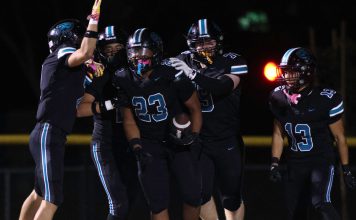A pair of councilmen dismayed with a current labor deadlock
believe a sympathetic ear may be all it takes to heal a simmering
fight between City Hall and local firefighters.
Gilroy – A pair of councilmen dismayed with a current labor deadlock believe a sympathetic ear may be all it takes to heal a simmering fight between City Hall and local firefighters.
Councilmen Craig Gartman and Bob Dillon, both up for re-election in November, say councilmen must be more intimately involved in bargaining with Fire Local #2805 in order to avoid the use of binding arbitration. The negotiation process, which involves using an outside party to resolve contract disagreements, represents the end-game option for public safety workers who are not allowed to strike.
Gartman and Dillon say the city’s negotiation team, led by labor attorney Charles Sakai and Human Resources Director LeeAnn McPhillips, should continue to take the lead in talks, but that councilmen should at least sit in on closed-door meetings to better gauge the cause of negotiation breakdowns.
McPhillips could not be reached for comment.
“I believe that the interests of the city is at the hearts of the firefighters as well as the hearts of council,” Gartman said. “Instead of using a mediator to communicate our passion for keeping a balanced budget, it would be best conveyed in person. I don’t believe that our true feelings are being properly communicated to the firefighters. It’s not so much the inability of our negotiating team, it’s just that they can’t see how passionate we are and we can’t see how passionate they are.”
Dillon said that he too is “not entirely happy with the current negotiating process, where the city’s labor team meets with the union and reports back to us. I’m getting to the point where I need to hear things directly from their mouth.”
Gartman’s concern with the process grew from the last breakdown in negotiations in early August, when talks broke off in about an hour. While both sides gave ground on contract demands, the issue of minimum staffing levels has proven to be a consistent deal-breaker. The city has demanded greater flexibility in staffing and denies union assertions that any changes to minimum staffing requirements would compromise firefighter safety.
Gartman, who along with other councilmen met with city negotiators prior to the latest round of labor talks, said the quick breakdown afterward came as a shock.
“When I left that closed session meeting with instructions to our negotiators, I thought that we were very, very close to settling this,” Gartman said. “Fire (union officials) wanted to come to the table. I applauded that. We talked about some issues and how fire had made movement. I walked out of there thinking we were going to solve this. And then what came back to us is that fire’s really kind of (upset with) us.”
After nearly of month since last meeting with city negotiators, union officials welcomed the idea of councilmen sitting in on talks.
“It would be very interesting to see that happen,” said Jim Buessing, a local firefighter and member of the union’s negotiating team. “I don’t know of anywhere where that has occurred.”
Buessing said the idea is a refreshing change in the stance of councilmen, who informed union officials at the beginning of talks in spring 2004 that they would not discuss with firefighters any labor matters during the negotiation process.
“City council made a pact not to speak with any members of Local 2805 on any issue,” Buessing said. “That makes for poor relations. A lot of us live in this town too and the safety of our job is on the line here. If we can’t express our concerns, they’re making a one-sided decision in our mind.”
But not everyone sees wisdom in drawing councilmen into the process, even in a passive role as observers.
“I think in general it becomes a very dangerous issue,” City Administrator Jay Baksa said. “You can’t just sit there. It isn’t a matter just of observation. If you’re in that room, there’s an expectation you can bring something to that table. If you’re going to have involvement, then every council member will want to have equal participation and involvement, and then you have potential chaos because then you have seven more people trying to negotiate.”
Mayor Al Pinheiro also criticized the idea of councilmen sitting in on labor talks. He said the latest breakdown resulted from more than miscommunication.
“At this point I don’t see a reason for (greater council involvement),” Pinheiro said. “It’s pretty clear what we can and cannot afford. Emotions are one thing. Reality is something else.”
Pinheiro has been the most outspoken critic of binding arbitration, arguing it places control over local finances in the hands of a non-elected outsider. His efforts to rescind binding arbitration through a ballot measure gained poignancy in late July, when councilmen learned that a November ballot measure could affect the outcome of the current labor deadlock. But councilmen opted to forego rushing to the November ballot amidst union complaints about due process and threats of legal action.
The decision meant that Dillon and Gartman – who stated their support for a measure that would give voters final say on arbitrator decisions – would not find their names on the same ballot as a measure condemned by public safety workers.
Gartman said he plans to push for more direct council involvement in labor talks at a council meeting prior to the November election. He brushed off the possibility that some may view the new approach as a maneuver to avoid a more contentious debate on efforts to uproot binding arbitration.
“I would love to solve the problem before it becomes more costly and political,” he said. “In the end the city will save not only financially, but also the wear and tear that a public fight entails. I don’t want this to become a public fight, because generally someone will win, but there’s going to be a lot of blood on the floor.”













